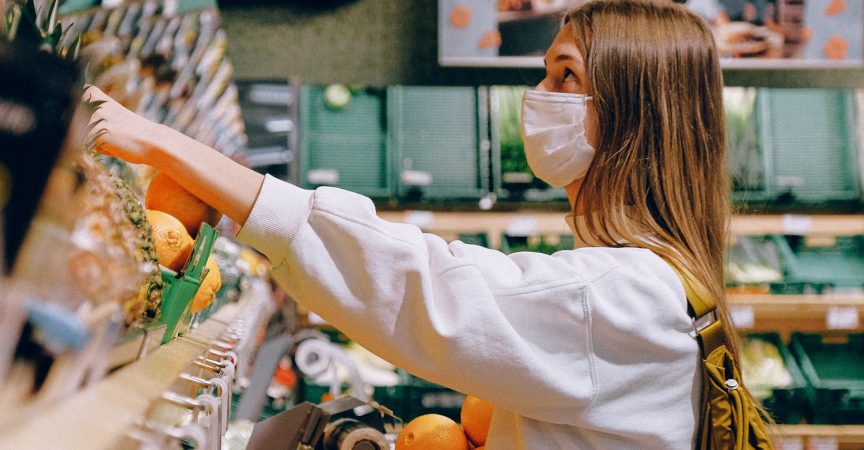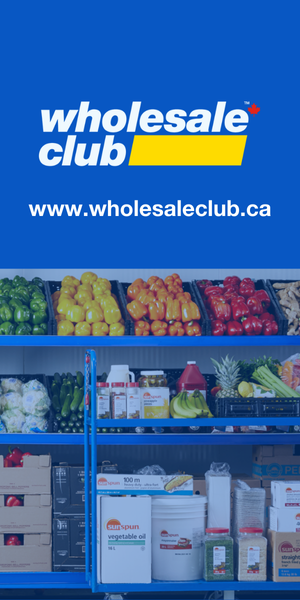Pandemic Pivots: How brands are responding to rapidly changing consumer needs
By Ellen Smith Senior Editor & Mishal Omar Managing Insights Editor, Trend Hunter Inc.
As we all navigate the effects of the COVID-19 pandemic, and we adapt and react to the ever-changing rules and regulations, our collaborators at TrendHunter took a look at how this pandemic has affected the way consumers are eating, shopping, and dining. And in turn, how other brands are changing their offerings to meet consumer demand.
Pre-Packaged Planning
As physical distancing measures remain in effect, once-simple decisions—like going to the grocery store—require a cost-benefit analysis. The need for meal-planning is greater than ever as most people are unable to keep up their habits of eating out—but doing everything from home, including working and/or homeschooling children, has resulted in increased responsibilities for many consumers. To make things a little easier on people (and to keep them at home as much as possible), some businesses are offering pre-packaged meal kits that make meal-planning much simpler for families and people in other communal living set-ups.
Among the companies pivoting to cater to consumer needs throughout the COVID-19 pandemic is Culinary Adventure Co.—a local Toronto-based food tour group that’s combining its love of food with its love of the city in a unique way. While consumers are stuck inside their homes, the brand has brought the culinary spirit of Toronto to their doorsteps, with curated food boxes inspired by the city’s foodie-friendly neighborhoods.
Each themed kit includes signature dishes and ingredients from restaurants within the city’s neighborhoods, offering Chinatown’s pork buns and barbecue meats, with chickpea curry and lentil dishes from the city’s Little India. More niche to Toronto locals is the St. Lawrence Market box that offers artisanal cheese, smoked salmon, and locally made mustards from the city’s most iconic public market, which has been closed since the beginning of the pandemic.
Charity & Production
Both people and businesses are trying to find their place in a capitalist system that’s been stripped down to meeting consumers’ most basic needs. Brands in the food and beverage industry are trying their best to make do, while also acknowledging the needs of others. Brands with the capacity to rapidly shift production in order to better meet the needs of consumers, or to donate to causes offering help, are increasingly doing so in order to relieve the burden that the average person is facing right now. COVID-19’s impact is beyond the physical and has taken a large mental toll as well—with the stress of financial instability, social isolation and the upending of lifestyles it’s brought on—and brands that are trying to relieve some of that impact are able to create a lasting impression on consumers.
A perfect example of businesses using their resources to support the community at this time is Toronto’s Spirit of York Distillery, which has shifted its focus away from alcoholic beverages in order to produce hand sanitizer in response to the global shortage. Using alcohol from its facility, the distillery has been producing sanitization gel that adheres to the guidelines presented by the World Health Organization. Starting this initiative in early March, Toronto’s Spirit of York was one of the first local businesses to jump to action, donating the proceeds from its gel bottles to the local food bank.
Community support had been at the heart of this distillery long before the pandemic, with 10% of its regular proceeds being donated to various city-wide initiatives. Once the pandemic was in full-force, The Spirit of York continued to brainstorm ways it could help, opting to reduce the price of its beverages, and donating $1 from every bottle to the local food bank.
New habits
With the majority of people’s recreational habits now being confined to the home, many are choosing to learn new skills, or hone existing ones, in order to pass the time and keep themselves stimulated. Virtual cooking shows are one way that brands are fulfilling the consumer need to keep themselves busy while they stay indoors. Right now, consumers are facing a loss of control, and a lot of uncertainty about what their futures will look like, whether that’s socially, health-wise, or financially. Online cooking shows and courses, and other home-based activities and skill-building hobbies, give consumers a sense of purpose, and allow them to control what they can even if it’s somewhat restricted.
A quick glimpse on social media will reveal that cooking is everyone’s new favorite hobby, and brands are responding by providing accessible and educational content to the masses. Based in Kelowna, British Columbia, Start Fresh Kitchen has hopped on this trend, offering virtual cooking classes and one-on-one coaching sessions to keep consumers well-fed and stimulated during these trying times.
What’s so unique about Start Fresh Kitchen’s approach, is that it allows consumers to book private sessions with Chef Michael Buffett, inviting seasoned and hobbyist cooks to join in on virtual sessions that are personalized to their tastes and experience level. Participants are welcome to bring forward their own recipe suggestions to the chef, receiving personal coaching to help consumers re-create a recipe they’ve been wanting to try.









